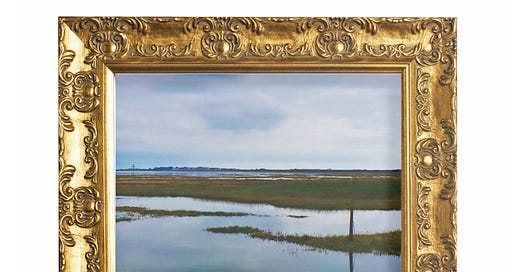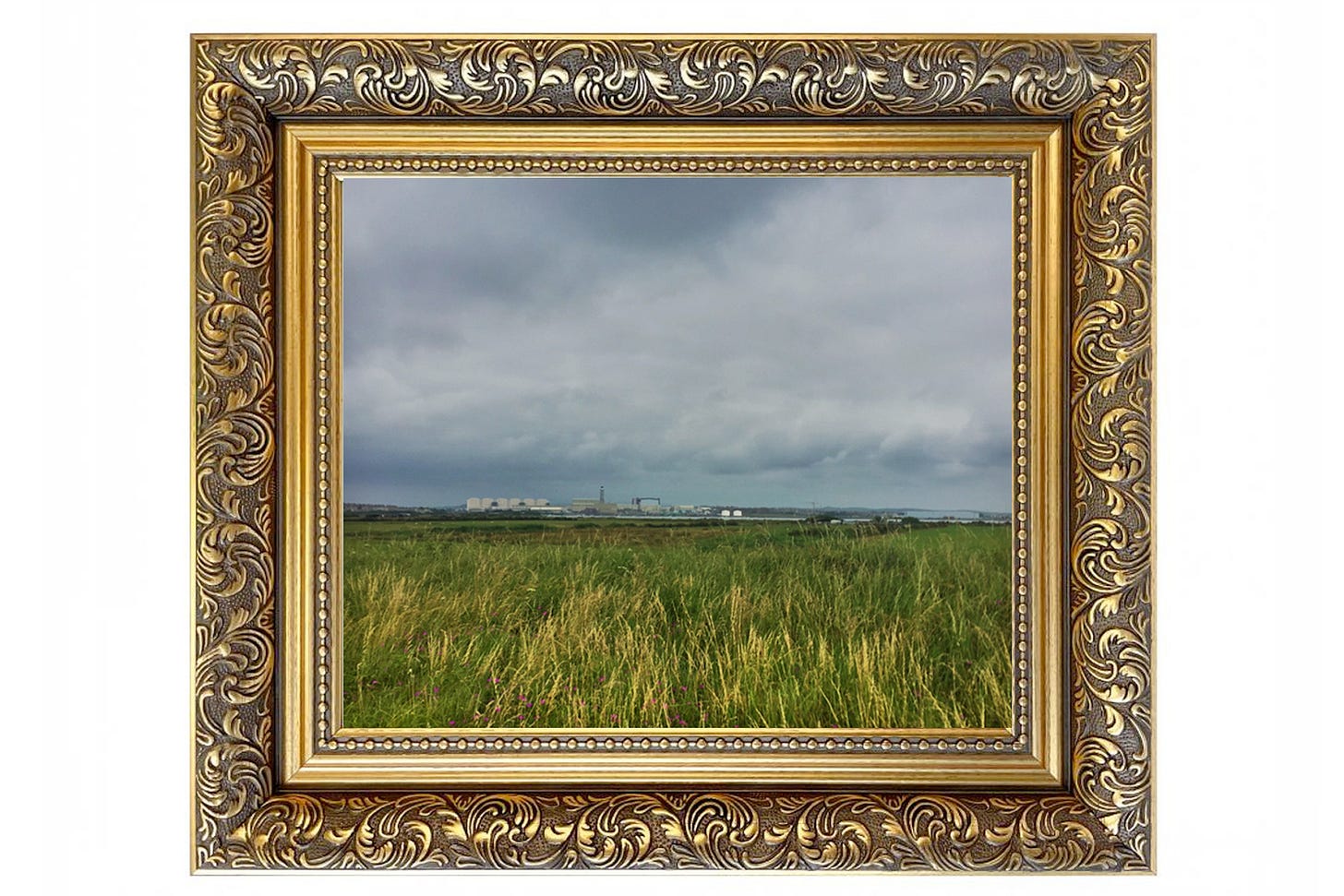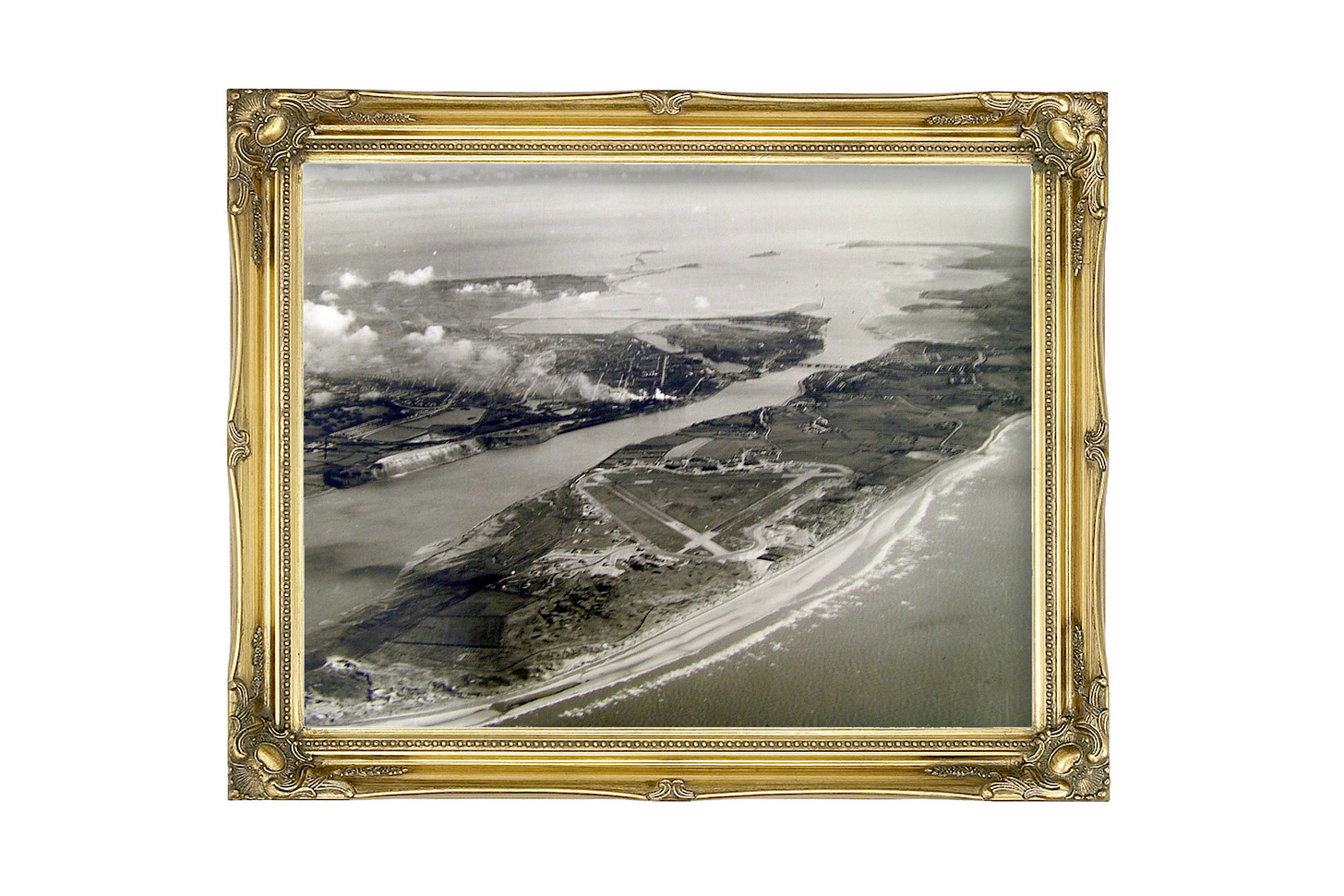Finding My Birth Mother: Excursions in a Lonely Landscape
I find myself confronting questions about identity, belonging and acceptance in a place that's slowly coming undone.
I am on another journey north. I’m walking along a storm-savaged beach, crunching through razor clam shells and reciting the words to an email I’d been sent the day before, and had memorised, line by line.
There wasn’t much to remember.
“I am the person you have been trying to find,” it begins. No salutation, no ‘Dear’, no ‘Hello’. No ‘David’.
“To say your letter was a shock to me is an understatement. I am glad that you are happy. I know this may not be the response you’re looking for, but please never contact me again. I’m sorry, Carol x”
The lower case ‘x’ feels more like a courtesy than a kiss. It’s a kiss from my birth mother. A kiss goodbye.
Just 24 hours ago, I was working in a client’s office, running a workshop on how to get your message across clearly and succinctly. I’d just handed out exercises when my phone lit up. My birth mother’s name popped onto the screen. I grabbed the phone and scurried out of the room. “I’m sorry,” I mumble, “I’ve just got to…”
It felt like a punch to the stomach. My eyes started to sting and water. This was not the response I’d expected. What had I expected? Davina McCall and Kleenex?
Maybe. Probably. Yes.
I hadn’t planned on writing a letter to my mother at all. I’d imagined I’d just turn up, knock on her door with a bunch of ranunculus and hear the orchestra swelling behind me.
“Don’t do that,” a friend (a mother, and much wiser than me) said. “She might feel like she’s being stalked. It would be a huge shock. Why don’t you write her a nice letter?”
So I did. I explained how, after a weekend’s detective work spent scrolling through electoral rolls, ancestry sites and forums, my partner and I had narrowed down our search. If I’m honest, it was mostly my partner. I don’t have the patience for anything methodical and diligent. I mean, I love Poirot, but I mostly watch it for the furniture.
I’d told her how we’d chased my mother’s name along a sinuous fifty year timeline, through births, deaths and marriages, poring over newspaper clippings and MySpace postings. I said that we were left with two women who could be my mother. Same name, same age, same location. Two women on one tiny island. What are the chances?
What I didn’t explain was why our search failed to give us a Poirot-like denouement. Instead, our trail ran cold with a notice in the ‘Deceased Estates’ section of The Gazette: one of the women had died just three months ago.
I’d never met this woman - either of them - but here we were, hunched over our dining table, witnessing the arc of a life played out on an ever-increasing crush of open tabs on my laptop. A little pebbledashed terrace house we tracked down on Google Maps. A marriage ended within five years. No other children. Dead at 60.
Was this my mother’s story? I wasn’t prepared for the intense emotional shock of it all. I felt robbed of something I never had. And I felt anger, too. Why hadn’t I done this sooner? What was I waiting for?
I never said any of this. Instead, I enclosed a cheery photograph of me on a boat tour of the Stockholm Archipelago (I thought, somehow, I needed to show my potential birth mother that I wasn’t in desperate financial straits. I was convinced the elaborate buffet in the background conveyed this perfectly).
What I didn’t say, but tried to convey with every sentence, was - if you are my birth mother, it’s all OK. I’m here. Look at me: I am happy and well, and filling my plate with obscenely expensive gravadlax. Hasn’t everything turned out just marvellously?
I tentatively offer the possibility of next steps. “If any of this makes sense to you,” I say, “it would be lovely to meet you.”
“I’m looking at a map,” I continued, snappily, “and it seems like Preston’s the halfway point. If you’re brave enough to risk a coffee at Preston railway station, that would be great.” I hesitated over a wry Celia Johnson reference but batted it away. Now’s not the time for all that.
I was sharply aware that, when I was adopted, my birth mother would have had no way of finding out where I was; that the process was designed to be final and irreversible in either direction. There would be no knock on the door. No letter landing on the doormat half a century later. The Children’s Act, introduced ten years’ down the line, would upend everything. And, with it, a shift away from secrecy and shame, and a move towards reconciliation, understanding and happy reunions in railway stations. “Thank you for coming back to me.”
What was I thinking?
I don’t remember how I finished the blogging workshop (although, come to think of it, I do know I’ve never been invited back). But I do know what happened next. I needed to drive north again. I’m not sure why I felt so strongly about it, but I knew I had to step away from the laptop screen and physically transplant my body into the scene. I felt that, on some irrational and unscientific level, this would reveal some buried home truths. That, somewhere buried deep within me, long-dormant synapses would start to twitch like dowsing rods.
The road to Walney Island is a journey of diminishing returns.
Long after the Lake District stops looking pretty, I skirt past serried rows of council houses on the approach to Barrow, their graffiti-sprayed gable ends facing the road. Two young lads in black hoodies and sweatpants are sprawled out on a weed-choked verge. It’s raining, but they don’t seem to notice. Above the town, a forest of muscular cranes marks the spot where the shipyards are busily assembling Dreadnought nuclear submarines.
I drive on, past boarded up gift shops and discount carpet warehouses, and cross the low bascule bridge over to Walney Island. It’s hardly a processional route; you’re on the island before you’ve barely registered there’s water beneath you.
Not quite land, but not yet sea, Walney’s parenthesis of sand spits and shingle curls around the western edge of Morecambe Bay. Every year, winter storms bite away a metre or so of its coastline, flooding the island’s main road, and splitting the island in two as the Irish Sea surges over the low lying marshes at the island’s waistline.
Vickerstown, the only settlement, is a neat-looking industrial village; built for the shipwrights of Vickers at the turn of the 20th century. I find the house registered on my birth certificate. It looks well-loved: two hanging baskets frame the front door with a vivid winter display of clematis and violets. There’s a baby’s stroller propped up against the side return of a bay window. In another life, I might have taken my first wobbly steps in the little front garden, I think.
But I drive on, to the island’s southernmost point, to my mother’s current house. The end of the road.
I snake my way past mudflats veined with a delicate network of rivulets and creeks. Here and there, makeshift signs have been hammered into the clay: ‘Save Our Island’ they plead. Another calls for a ‘rock armour defences’ - a slim rampart of granite to square up to the fury of the North Atlantic.
Who are they holding it back for, I wonder? This is an ephemeral, featureless landscape – all low horizons and heavy skies, where boundaries between land, sea and sky are vague and hesitant. Come next year, I think, and this entire scene would have mutated, and slid from my grasp.
This is not a place to put down roots, but somewhere to flee from before the waves wash over you.
I wind down my window to catch the high-pitched squeaks of oystercatchers, their bright orange beaks piercing the silt. They’re the only proof that this entire scene isn’t just a stage backdrop of clouds massing over emptiness.
I turn a corner. My sat nav tells me my mother’s family farmhouse is coming up on my right hand side. The very last house before the land finally loses its battle with the sea.
I pull up sharply. A woman stands on the verge to my left with a golden retriever. She nods at me as I raise my hand to acknowledge her, and wait as she crosses the road in front of me.
She is tall, and walks briskly. She has deep brown eyes. I have no doubt: this is my mother.
For a second I think of opening my car door and asking something inane like “is this the way to the nature reserve?” and, in doing so, hope that see recognises me from the photo. That she sees something of herself in my face, as I have just done in hers.
But I am too late. She opens the farm gate, walks up the gravel path to her front door, and opens it. I don’t start the car. She turns around and looks over at me, briefly, before closing the door behind her.
There is no place for me here, I think. This is where the trail ends. Time to go home.
As I drive west again, I spot signs for Barrow’s general hospital and its maternity unit.
That’s strange, I think. I was born on the other side of the mountains, over an hour’s twisty drive away in Kendal. Saint Monicas. I recall the name from my birth certificate. What made her choose there?
As I retrace my drive back along the island’s edge to the suburbs, past shrieking kids darting about like charged particles in a school playground, I replay the scene.
Two lonely people hunkered beneath a vast, featureless landscape, like some 17th century Low Countries canvas (Pieter de Molijn's lost masterpiece, ‘Landscape With Two Figures and a Skoda Fabia’). For a moment, two parallel universes brushed against each other’s edges, only to be sent spinning away to the furthest edges of the cosmos again. Or, in my case, a Costa Coffee in Barrow.
Before I drive, I need to think. I want answers. Why doesn’t she want to meet me? This feels alien and – I dare to let the thought creep in just a little – selfish.
I was only doing it for you, anyway, I think. This was my gift. Isn’t this what you’ve been waiting for your whole life? Look at me. Look at that Swedish salmon. We are high value items, both of us. And yet, you turn us away?
Throughout my search I’d been chatting to a couple of people on an online forum. They’d all eagerly offered help in how to access my birth records, and councillors they’d recommended. The house keeping and the soul searching of it all.
“Well, that’s the end of that,” I type into my phone, as I wait for my croque monsieur to cool. “I wrote to my birth mother,” I post on the forum. “She doesn’t want to know me, and told me never to contact her again. Also, I found out that St Monica’s hospital is nowhere near where she lived. Strange.”
I was full of righteous indignation. Here I was, offering happy endings and reconciliation, and all I got was a cold shoulder in a layby. How ungrateful.
I stare outside at the tired-looking town. An impromptu market is strung out along the street. Trestle tables full of dog-eared paperbacks and chipped glass decanters. A woman is selling little crocheted dolls that are starting to droop in the drizzle. Two for a tenner. Their pretty pastel colours look shockingly out of place against the drabness of the scene.
What would I have done here? How long would I have stayed?







this is gorgeous. is it part of a longer piece?
also this line: "I mean, I love Poirot, but I mostly watch it for the furniture." is especially magnificent.
Beautiful writing, always.